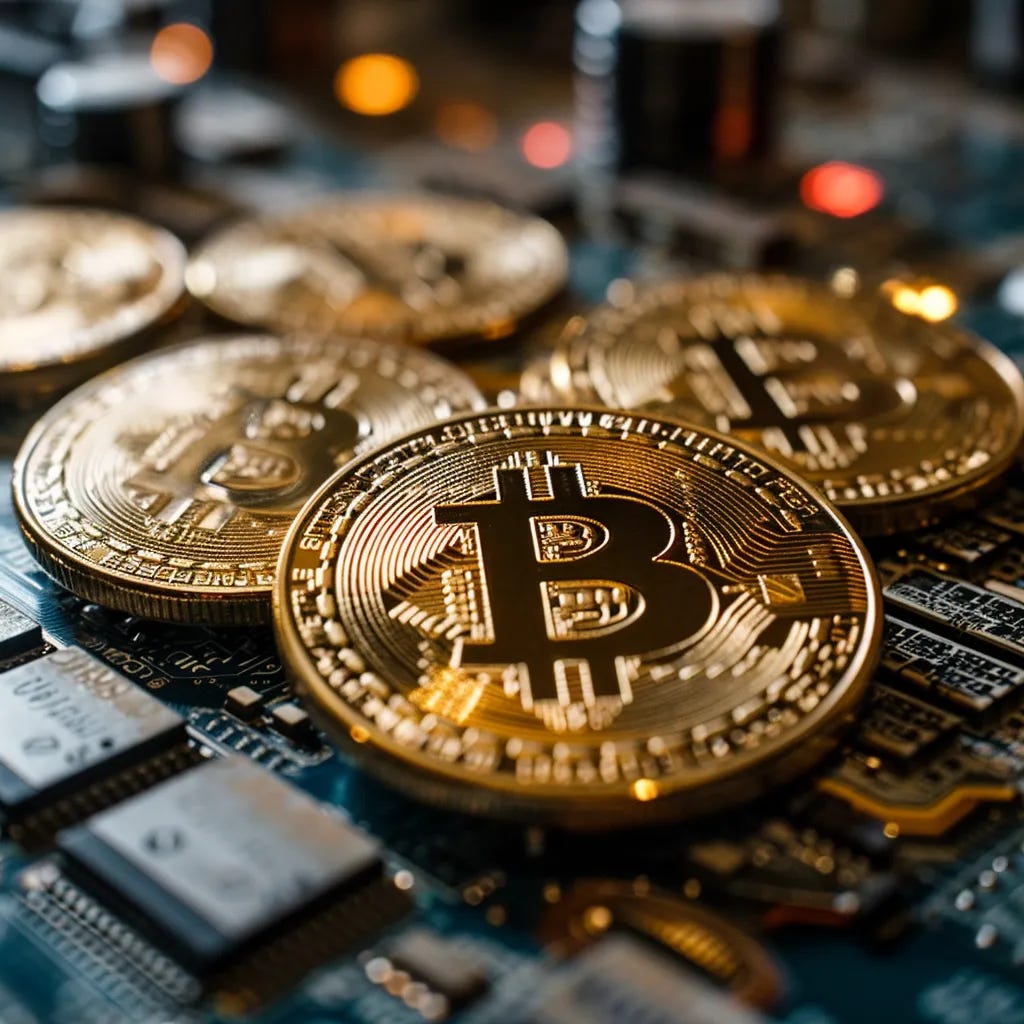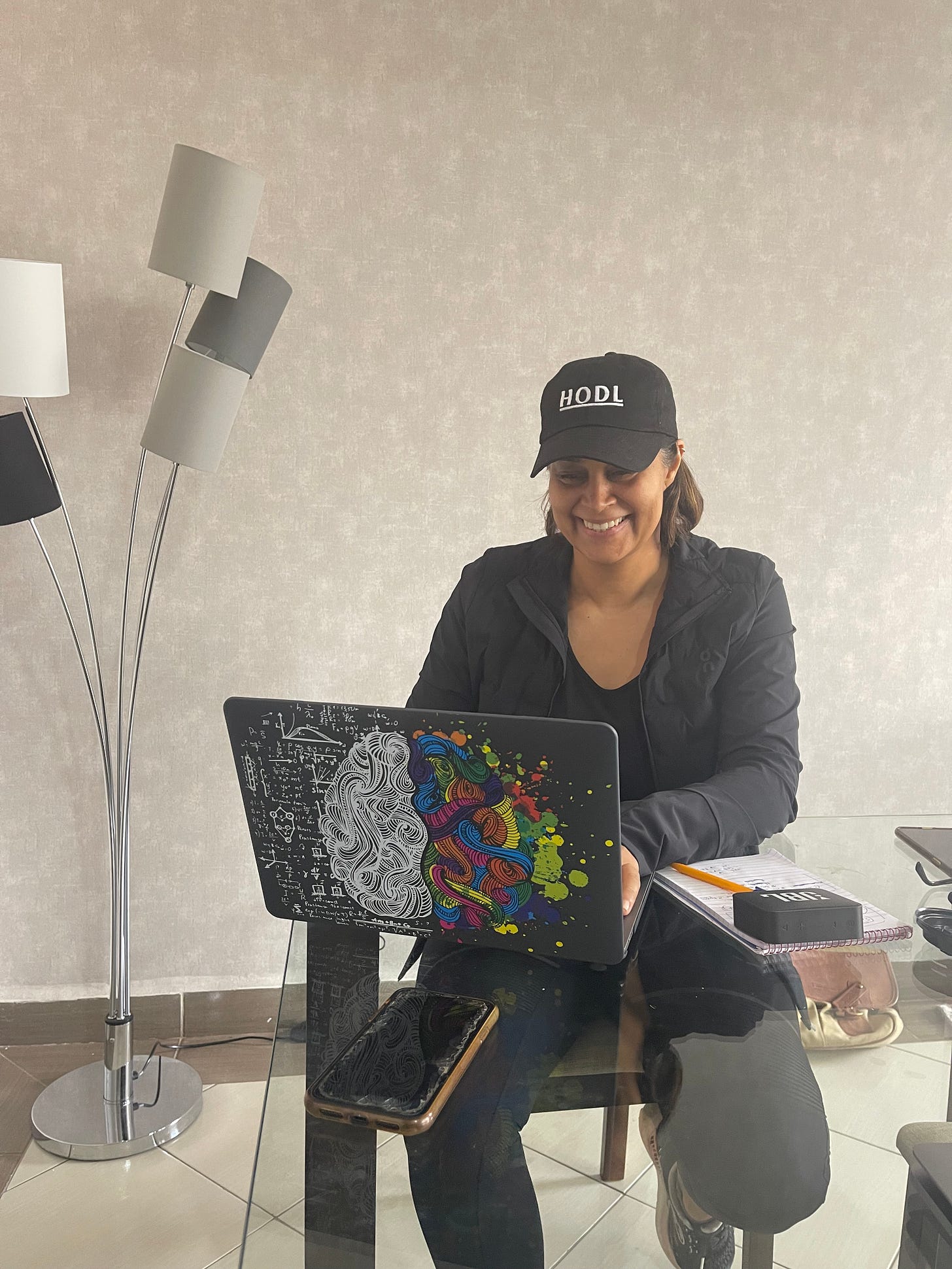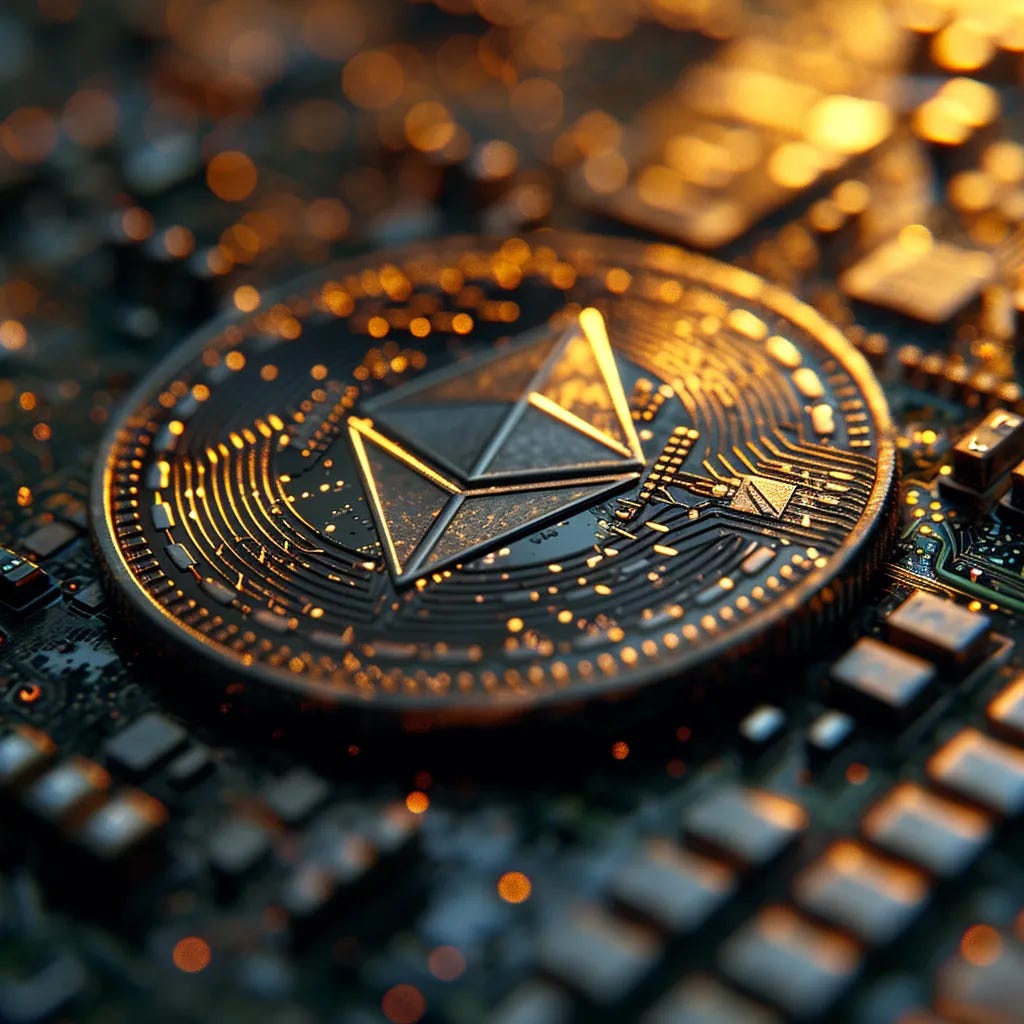Bitcoin Basics and Crypto Conversations Over Drinks or Dinner
What I learned from the last two years of investing in Crypto. Have an entry and exit plan. Dollar Cost Average in. Invest only what you can afford to lose. Take profits on the way up. Scammer Alert.
Crypto. This is an area that I have been learner-builder in. I am in the process of re-stacking my crypto portfolio. I think it’s worth covering some basics because there’s going to be a lot more chatter about crypto in the coming year as the markets look poised for a crypto pump.
General thinking among experts is that money will likely flow first into the higher cap coins at the beginning of the year, and then a few months later there will likely be a move toward alt coins and the smaller cap coins. ‘A perfect storm’ say crypto enthusiasts.
There are three main factors driving a wave of optimism.
First, There’s a Bitcoin Spot ETF the whole crypto community is anticipating with fervor. This is expected sometime in early January. If this is green-lit, it means more institutional investors will enter this space and create greater demand for Bitcoin. There will be less friction to buy coins, more regulation and more overall interest and accessibility.
Second, an event known as the ‘Bitcoin’ halving will be happening in April of next year. This means less Bitcoin supply, and therefore more demand. The price goes up.
Third, it’s an election year in the United States. This means more stimulus. A likely cut in interest rates, and an overall macro economic environment that will be a boost for Bitcoin and altcoins.
From a professional standpoint, I have been this immersed because I think crypto could solve the ease of payments problem I encounter in much of my comms work across the diverse African continent (currencies, exchanger rates, acceptable platforms, fees, amount limitations per day.) I am also interested in exploring decentralized storytelling and media because I think the solution could lie in NFTs and blockchain. So, here are some basics to get you into this mix. They comprise of notes to myself over the years, and dozens of hours of You Tube watching.
What’s Blockchain?
This is a chain of blocks that has information. It has digital timestamps. Think of it like a notary.
No one person, or one entity manages it. A peer to peer network where everyone is allowed to join the blockchain. It’s an open ledger available to anyone. I can look into any transaction on the blockchain and see what wallet activity is going on.
Every single transaction is forever recorded in a block. The info inside each block depends on what’s being sent. For instance: From Zain, To: You, Amount $1 BTC.
Each block contains data, a hash. Think of this as a fingerprint. It’s always unique. If something changes (a new transaction) then the hash changes. The security of a blockchain comes from its use of a hash.
What’s Cryptocurrency?
Virtual currencies that run on blockchain technology. You can’t counterfeit it. You don’t need a bank or any central authority. It’s protected by strong encryption.
What’s Bitcoin?
The supreme cryptocurrency.
Considered a Store of Value. Like buying and investing in gold. There are also only 21 million BTC in the world and the supply is limited.
Decentralized money. Bitcoin is a Peer to Peer Cash electronic system. There’s no bank or middle man entity. It’s an immediate and direct transaction you can make.
Proof of Work Consensus. When a transaction is made, nodes (aka computers) work to confirm the transaction. For Bitcoin they compete against each other to ‘win’ the transaction. Once a computer confirms it, a ‘hash’ is generated, and stored on the blockchain for anyone to see and confirm this transaction occurred. The winning node gets rewarded with Bitcoin. All the computers verify the transaction and add it to the block chain. It helps with security. This consensus mechanism on which Bitcoin works on called Proof of Work.
The transactions are stored on an Distributed Ledger on the blockchain.
What’s Ethereum?
The goal here is to decentralize the internet. There is no third party. Anywhere. I made the mistake thinking it’s the same as Bitcoin. It’s not. It’s totally different.
Supercomputer. Think of Ethereum blockchain as the supercomputer of the whole world. People can connect to one another through this very powerful supercomputer. Ethereum is known as a layer 1. A foundation that allows you to build ‘stuff’ DIY style.
Occupational hazard alert: but think of a TV anchor who needs make up before going on air. Start with foundation. That’s the layer 1. Then the powder, the blush, the eyeliner, mascara, lipliner and eyeshadow comes over this base layer. That’s the ‘stuff’ you can build on Ethereum. It’s called building decentralized applications aka DAPPs. Using the code Ethereum operates on, you can build decentralized finance (DeFi), decentralized social media (DeSo), decentralized gaming (Game Fi), metaverses, Non-Fungible Tokens (NFTs), whatever. It’s all done with Smart contracts.
Smart contracts are self executing contracts peer-to-peer. No middleman is needed for any type of a transaction. Transactions are immutable. Meaning, you can not undo it.
Eth. Or Ether. This is the cryptocurrency that sits on the Ethereum blockchain. The transactions on the Ethereum blockchain cost money. Eth was basically invented to pay the people (miners) running the computers that confirm transactions on the blockchain. e.g. NFTs have been the main asset class that have used Ethereum, so the transactions occur in the currency Eth.
What are Alt Coins
Easy. This is anything that’s not Bitcoin! They are an alternative to Bitcoin, ergo, an Alt Coin. There are hundreds. Take a look at Coingecko. Once Bitcoin moves, they all move along with it.
What I learned from the last two years of investing in Crypto
Have an entry and exit plan
Dollar Cost Average in.
Take profits on the way up.
Do not be emotional about decisions.
Hold Stablecoins like USDC or Tether and keep it ready for when there's a dip. You can move in to buy faster, easier.
Be really careful of scammers. Take funds off exchanges. Use my VPN when trading. Use an authenticator app. Keep seed phrases safe.
I'm going to ignore price predictions this year.
I will not use the word "moon"
Have some fun ! Take some risk.
Let me know in the comments if you have more crypto info desires. It will help me tailor the content of this Substack. I’m happy to explain my own portfolio choices, and help build greater understanding.






